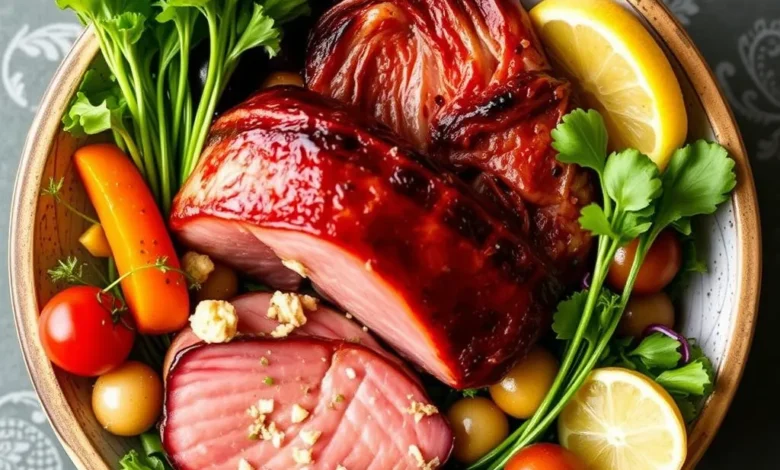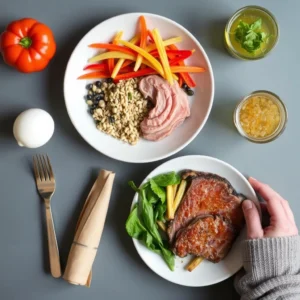The Rise of Omnivore Eating: Balancing Plant-Based and High-Quality Animal Products

In kitchens and restaurants around the world, a quiet but powerful shift is taking place. The old debates between “meat-eaters” and “vegetarians” are giving way to a new, more balanced approach: omnivore eating. This modern way of eating is less about strict labels and more about thoughtful choices—embracing both the vibrancy of plant-based foods and the nourishment of high-quality animal products.
A New Kind of Balance
At its core, omnivore eating is about variety and moderation. Instead of centering every meal around meat or eliminating it entirely, people are filling their plates with colorful vegetables, hearty grains, and legumes, while still enjoying animal products in smaller, more intentional portions. The focus has shifted from quantity to quality. When animal foods are included, many are choosing options like pasture-raised eggs, grass-fed beef, wild-caught fish, and dairy from responsible farms.
around meat or eliminating it entirely, people are filling their plates with colorful vegetables, hearty grains, and legumes, while still enjoying animal products in smaller, more intentional portions. The focus has shifted from quantity to quality. When animal foods are included, many are choosing options like pasture-raised eggs, grass-fed beef, wild-caught fish, and dairy from responsible farms.
This approach is not just about what’s on the plate—it’s about how that food is produced. There’s a growing awareness of the impact our food choices have on the environment and animal welfare. By seeking out animal products from farms that prioritize ethical and sustainable practices, omnivores are supporting a food system that’s better for the planet and for future generations.
Health Meets Enjoyment
Omnivore eating is also about maximizing nutrition and enjoyment. Plant-based foods provide fiber, antioxidants, and a rainbow of vitamins and minerals. At the same time, animal products offer complete proteins, vitamin B12, iron, and other essential nutrients that can be harder to obtain from plants alone. By combining the strengths of both, omnivores can enjoy a diet that is both satisfying and balanced.
antioxidants, and a rainbow of vitamins and minerals. At the same time, animal products offer complete proteins, vitamin B12, iron, and other essential nutrients that can be harder to obtain from plants alone. By combining the strengths of both, omnivores can enjoy a diet that is both satisfying and balanced.
This way of eating also makes it easier to adapt to individual needs. For families with growing children, athletes, or older adults, including some animal products can help meet higher protein or nutrient requirements. Meanwhile, plant-forward meals can help reduce the risk of chronic diseases and support digestive health.
Cultural Connection and Flexibility
Food is about more than nutrition; it’s also about culture, tradition, and connection. Omnivore eating allows people to participate in family recipes, holiday feasts, and social gatherings without feeling restricted. It’s a flexible approach that respects both personal values and the joy of sharing food with others.
Many people find themselves eating mostly plant-based meals at home, but enjoying a special cut of meat or a favorite cheese when out with friends. This flexibility removes the pressure of perfection and makes healthy, sustainable eating more accessible to everyone.
Innovation on the Plate
The food industry is responding to this trend with creativity. Grocery stores and restaurants are offering more options than ever, from veggie-packed bowls to responsibly sourced meats and dairy. There are even hybrid products—like burgers made from a blend of mushrooms and beef, or yogurts that mix dairy with oats or almonds—catering to those who want the best of both worlds.
offering more options than ever, from veggie-packed bowls to responsibly sourced meats and dairy. There are even hybrid products—like burgers made from a blend of mushrooms and beef, or yogurts that mix dairy with oats or almonds—catering to those who want the best of both worlds.
Food technology is also playing a role, with new developments in plant-based proteins and cultivated meats that mimic the taste and texture of traditional animal products. These innovations are attracting not only vegans and vegetarians but also curious omnivores looking to diversify their diets.
A Mindful Way Forward
Omnivore eating isn’t about following a rigid set of rules. It’s about being mindful—thinking about where food comes from, how it’s produced, and how it makes us feel. It’s about celebrating abundance and making choices that are good for our bodies, our communities, and the earth.
As more people embrace this balanced approach, the future of food looks more inclusive and sustainable. The rise of omnivore eating is a reminder that we don’t have to choose sides; we can enjoy the richness of both plant and animal foods, savoring the best of what nature has to offer.
In the end, the most important ingredient is intention. By eating with awareness and gratitude, we can nourish ourselves and the world around us—one delicious, balanced meal at a time.




